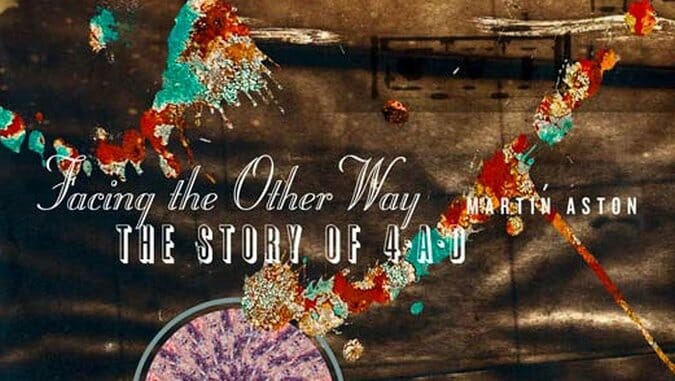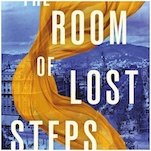Facing the Other Way: The Story of 4AD by Martin Aston
Heaven or Las Vegas

“If the 2002 fictionalized film about Factory Records was called 24 Hour Party People, what might a film about 4AD be titled—Eight Hours Chilling, and Then Bed?”
Martin Aston poses this question near the beginning of Facing the Other Way, his detailed, blow-by-blow account of the independent record label 4AD (originally named Axis), started in 1979. In contrast with the more club-friendly leanings of bands on another big English indie label, Factory, we know 4AD for seminal ‘80s groups—Bauhaus, Birthday Party, the Cocteau Twins, Throwing Muses—who eschewed the dance floor in favor of, as Aston puts it, “dark dreams and hidden depths.”
Aston’s story of 4AD revolves around co-founder Ivo Watts-Russell. The book comes chock full of names, recording sessions, Aston’s thoughts on various releases (plus the press reaction), and comments from everyone the author can get his hands on. The pool seems to include anyone able or willing to return calls or emails: Vaughan Oliver, who helped create the label’s distinctive artwork; business collaborators like Peter Kent and Martin Mills; assorted musicians who had varying degrees of success.
It all comes back to Ivo in the end. In the late ‘70s, he wasn’t entirely sold on punk: “I liked some of the Clash’s singles but their debut album was so badly recorded, it didn’t interest me at all…I’d been listening to what people saw as embarrassing and obscure country rock—no one was interested in Emmylou Harris or Gram Parsons back then. But I just loved voices…”
Not long after founding Axis, Ivo changed the label’s name—a German label already claimed the moniker. But change is good: “What I loved about 4AD,” Ivo said, “was that it meant nothing… No ideology, no polemic, no attitude. In other words, just music.”
Just music represents Ivo’s strength, and his weakness. He was “content to put out records that were committed, passionate and uncompromising.” He ignored trends. More importantly, he pursued avenues other labels didn’t even see. Still, a record label is by definition a business—art intersects commerce the instant it goes up for sale. Ivo’s consistent failure to understand this … or his willful ability to ignore it … plagued 4AD.
Ivo notes, “One album a year did pretty well and allowed us to keep going.” Bauhaus funded the label’s operations during 1981. Birthday Party—Nick Cave’s band—took care of 1982.
The label created a 4AD look and an organizational system. The special art wing gave visual continuity to the album covers, and a unique cataloguing scheme encouraged a culture of collection: AD meant a 7” single; BAD indicated an EP; CAD an LP.
Nick Currie, a member of early 4AD group the Happy Family, suggested, “Indie labels were not so well known or established at that time, yet labels like 4AD and Factory were already so refined, in a new hyper-glossy manner, with top-flight art direction… it felt distinct from what had come before.”
The success of the Modern English single “Melt With You” greatly raised the label’s profile, as did the signing of the Cocteau Twins, who quickly attracted critical adoration due to Elizabeth Fraser’s distinctive vocals (one writer famously dubbed her the voice of God) and Robin Guthrie’s shimmering, reverb-laden swathes of guitar. The famous producer Brian Eno once told Guthrie that he would “never have had the courage to use the size of reverb that you used on Head Over Heels.”
Later in the ‘80s, the label added Throwing Muses as its first U.S. band, then the Pixies after that. Both groups released important indie-rock records.
-

-

-

-

-

-

-

-

-

-

-

-

-

-

-

-

-

-

-

-

-

-

-

-

-

-

-

-

-

-

-

-

-

-

-

-

-

-

-

-








































